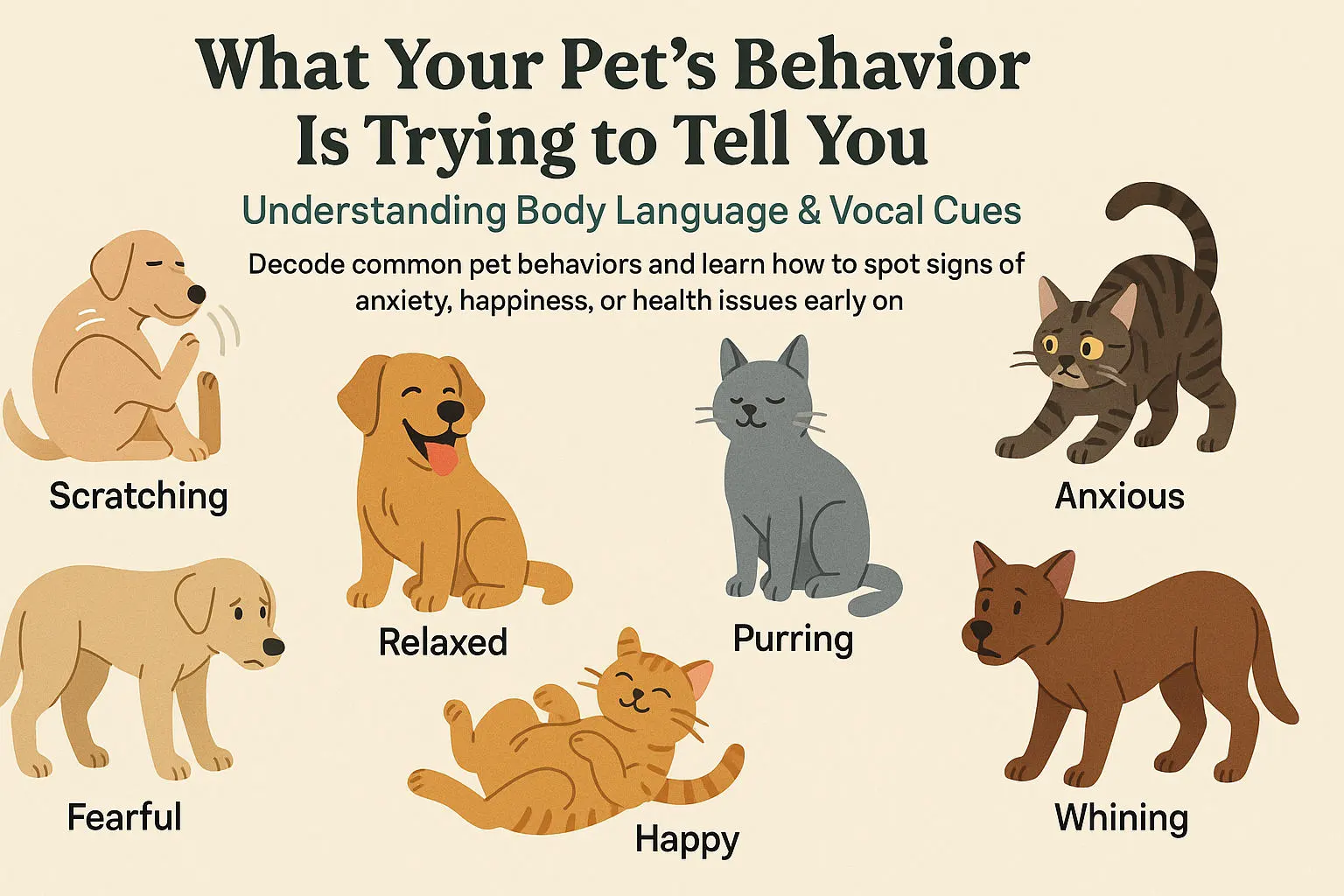What Your Pet’s Behavior Is Trying to Tell You
- Understanding Body Language & Vocal Cues
Pets may not speak our language, but they’re constantly communicating — through posture, sounds, movement, and even eye contact. Learning to interpret your pet’s behavior can deepen your bond, prevent problems, and help you care for their emotional and physical needs. 🧠💬
Common Dog Behaviors 🐾
- Tail wagging: Not always happiness! Fast, low wagging can signal anxiety or nervousness. Loose, full-body wag usually means joy.
- Yawning or licking lips: Often signs of stress or discomfort in a social setting.
- Staring or stiff posture: May signal fear, alertness, or resource guarding.
Common Cat Behaviors 😺
- Purring: Often a sign of comfort, but some cats purr when in pain too.
- Slow blinking: A sign of trust and affection (return it to bond more!).
- Tail flicking: Irritation or over-stimulation.
Vocal Cues 🔊
- Barking/Meowing: Pitch and repetition can indicate excitement, demand, or distress.
- Growling or Hissing: Clear signs to back off or give space.
- Whining/Howling: Often signals loneliness or anxiety — consider using a calming spray to help reduce stress naturally.
When to Worry ⚠️
- Sudden withdrawal or hiding behavior
- Loss of appetite or energy
- Destructive behavior out of nowhere
These can be signs of a deeper issue — from illness to emotional distress. If unsure, always consult your vet.
Being fluent in your pet’s unique language can turn frustration into understanding, and confusion into connection. ❤️
